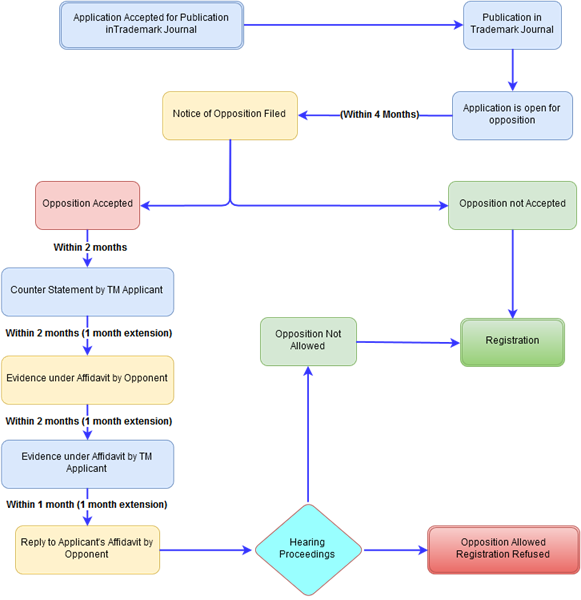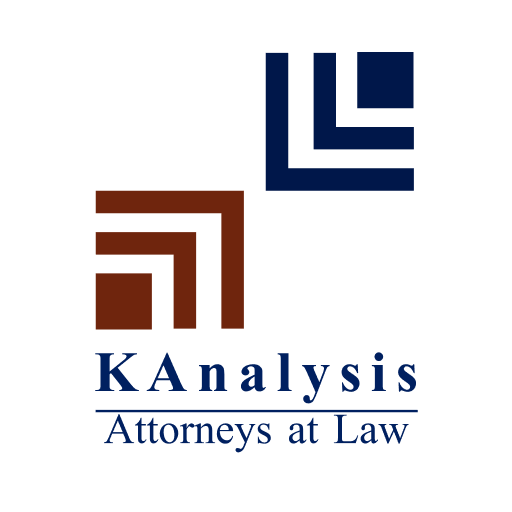Upon meeting the qualification for registration against objections raised by an examiner, a Trademark is published in the Trademarks Journal to enable any third party oppose the registration within a period of three months (extendable by one month).
The Opposition proceedings are the undisputable and effective remedy and requires being vigilant to initiate appropriate proceeding at the right time.
It is very important for all types of businesses in this competitive world to monitor and protect their trademark from any third party trying to register and take benefit of the goodwill and reputation.
Once a trademark application is published in the Trademark Journal any interested party can oppose the registration of the trademark by filing appropriate grounds on prescribed form with fees. The opposing party should oppose the trademark within three months (can be extended one month) from the date of publication of the trademark in trademark journal.
The opposing party should oppose the trademark by filing Form-5 along with supporting evidences for opposition. The opposing party can file opposition application on absolute grounds or relative grounds of refusal as provided under Section 9 & Section 11 of The Trade Marks Act, 1999.
The various grounds on the basis of which a person may initiate Opposition Proceedings, wherein the trademark applied for is:
- Devoid of distinctive character
- Descriptive in nature
- Customary in the current language and or in the established practices of trade
- Likely to deceive public or cause confusion
- Contains matters that are likely to hurt religious feelings of any class or section of the citizens of India
- Prohibited under the Emblem and names (Prevention of Improper Use) Act, 1950
- Exclusively of the shape of the goods
- Identical with/similar to an earlier trademark
- In Malafide/bad faith
- Prevented by virtue of the law of passing off
- Contrary to any law for the time being in force
- Prevented by way of Copyright Act, 1957
It is advisable that the opposing party incorporates all possible grounds and evidences in an opposition application. Once the opposition application is filed the registrar of trademark will service opposition notice on the applicant and accordingly the applicant should file Counter Statement by filing Form-6 against the opposition application within two months from the date of such notice. Failure of the applicant to file counter statement against opposition will result into abandonment of the trademark application.
After the applicant files counter statement, the registrar will serve the counter statement upon the opposing party. Further, once the counter statement along with evidences is on record the registrar will start the hearing proceedings and accordingly the trademark may be accepted or rejected for registration. The aggrieved party in this proceeding can challenge the decision of the registrar by filing an appeal before the Intellectual Property Appellate Board.
The process can be summarized as:

